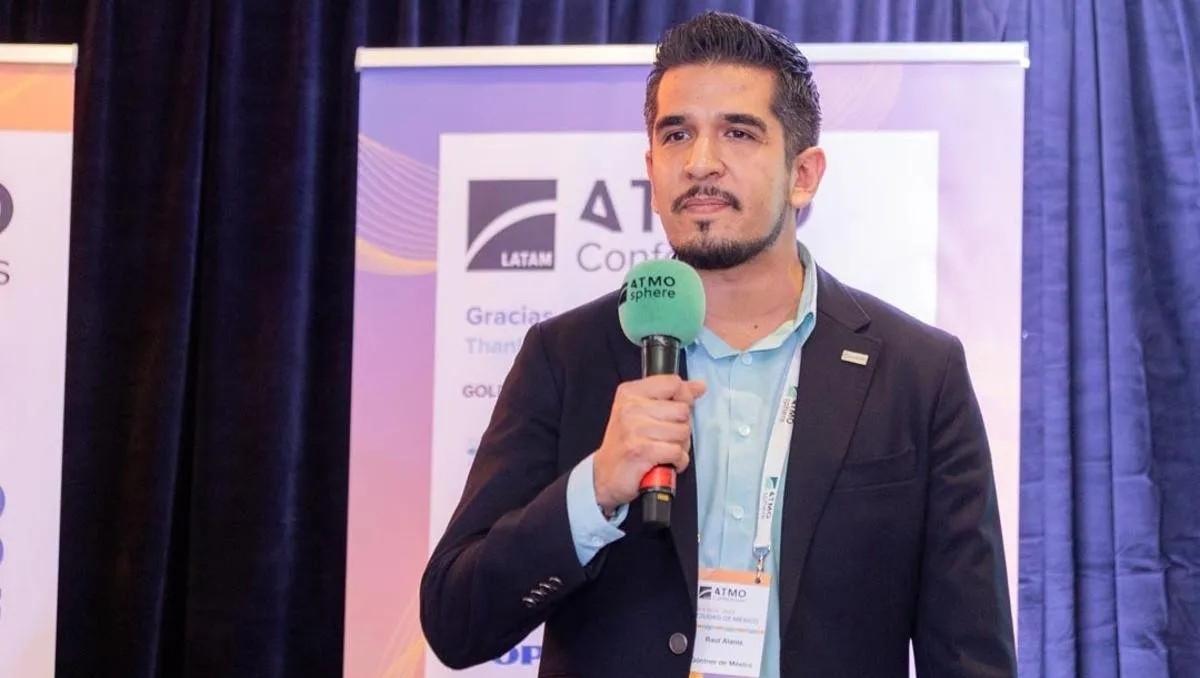Güntner finds transcritical CO2 to be up to 18.6% more efficient than R404A in Monterrey, Mexico
March 25, 2024

Transcritical CO2 (R744)-based refrigeration systems have been found to be up to 18.6% more efficient than R404A alternatives in hot climates like Monterrey, Mexico, according to Güntner, a German manufacturer of heat exchangers and cooling systems.
While the company found that a R404A-based system marginally outperformed a transcritical CO2 rack with adiabatic cooling and parallel compression in ambient temperatures of 21–27°C (69.8–80.6°F), R744 was significantly more efficient in ambient temperatures up to 20°C (68°F) and above 28°C (82.4°F).
With Monterrey experiencing a wide range of temperatures throughout the year – from average lows of 10°C (50°F) in the winter and average highs of 32°C (89.6°F) in the summer – the CO2-based system demonstrated an average COP of 3.01 compared to just 2.45 for the R404A system.
This performance data was presented by Raúl Alanis, Mechanical Engineer at Güntner, during a refrigeration case studies session at the ATMOsphere (ATMO) LATAM Summit 2023. The conference took place in Mexico City in November and was hosted by ATMOsphere, publisher of R744.com.
Alanis’s case study looked at an 11,607m2 (124,936ft2) cold storage facility in Monterrey with a cooling demand of around 1.4MW (398TR).
Based on the end user’s requirements and the local climate, Güntner supplied the facility with two transcritical CO2 booster racks with adiabatic coolers and parallel compression. The units provide 712kW (202.5TR) of cooling capacity in low temperature at −20°C (−4°F) and 652kW (185.4TR) of cooling capacity in medium temperature at 4°C (39.2°F), Alanis explained.
The system also includes permanent magnet compressors to boost system efficiency and hot gas defrost with a bypass header.
“In projects of industrial or semi-industrial scale, long piping runs make hot gas defrosting difficult,” he said during his presentation. “The solution [is to] make use of header bypass technology.”
Considering costs
According to Alanis, end users should consider a range of factors when deciding on their refrigeration systems, not just cooling load and climate. He said weighing up varying capital and operational costs is also important.
For example, by investing additional capital expenditure (CapEx) on higher-efficiency technologies, end users can reduce their operating expenditure (OpEx) by cutting down on energy and water consumption.
Carefully designing a system can also reduce both CapEx and OpEx.
“Investing in an adiabatic gas cooler combined with parallel compression, when well applied, is less expensive than using just parallel compression or any other technologies,” Alanis told R744.com. “This is based on the dimensioning stage of a project in which you can [reduce] the size of the whole system. [For example,] by taking advantage of water usage during the warmest climate conditions, you will have less compression requirements. In other words you’ll have smaller [system components].”
This could reduce CapEx by 10–25% depending on weather conditions, he added.
For an OpEx perspective, this approach could significantly reduce energy consumption compared to a system using parallel compression only.
“You would operate at lower pressures due to [the] adiabatic [cooler] and with smaller component sizes in the system, which is ideal for places with extreme climate conditions like Monterrey,” Alanis said.


